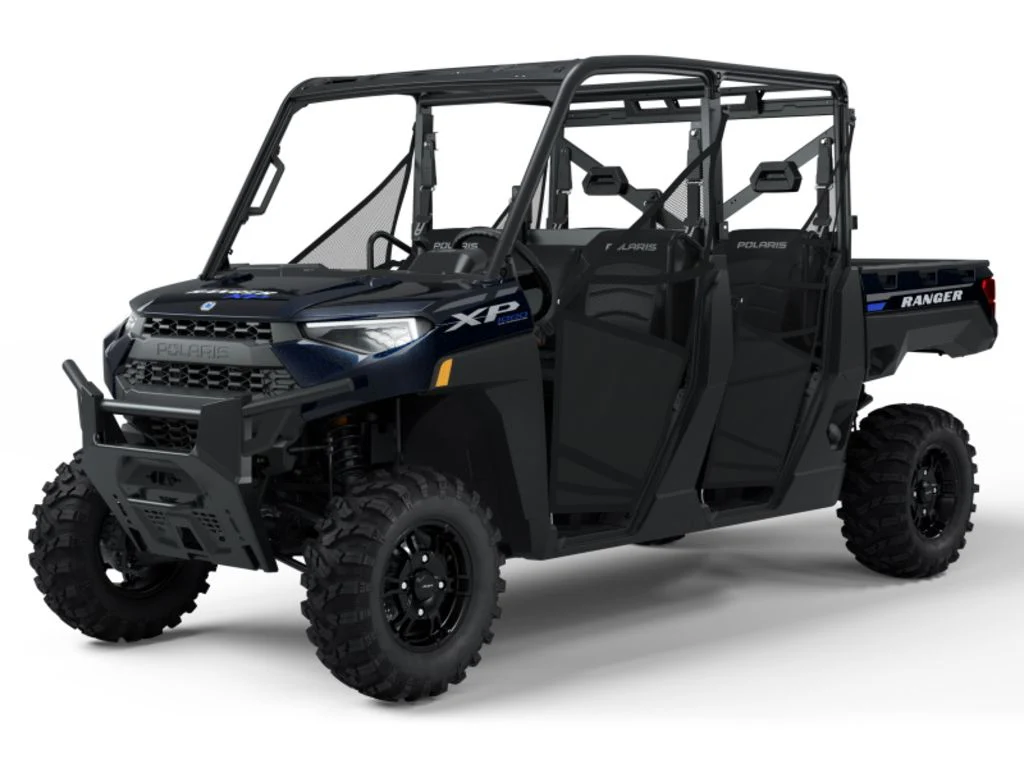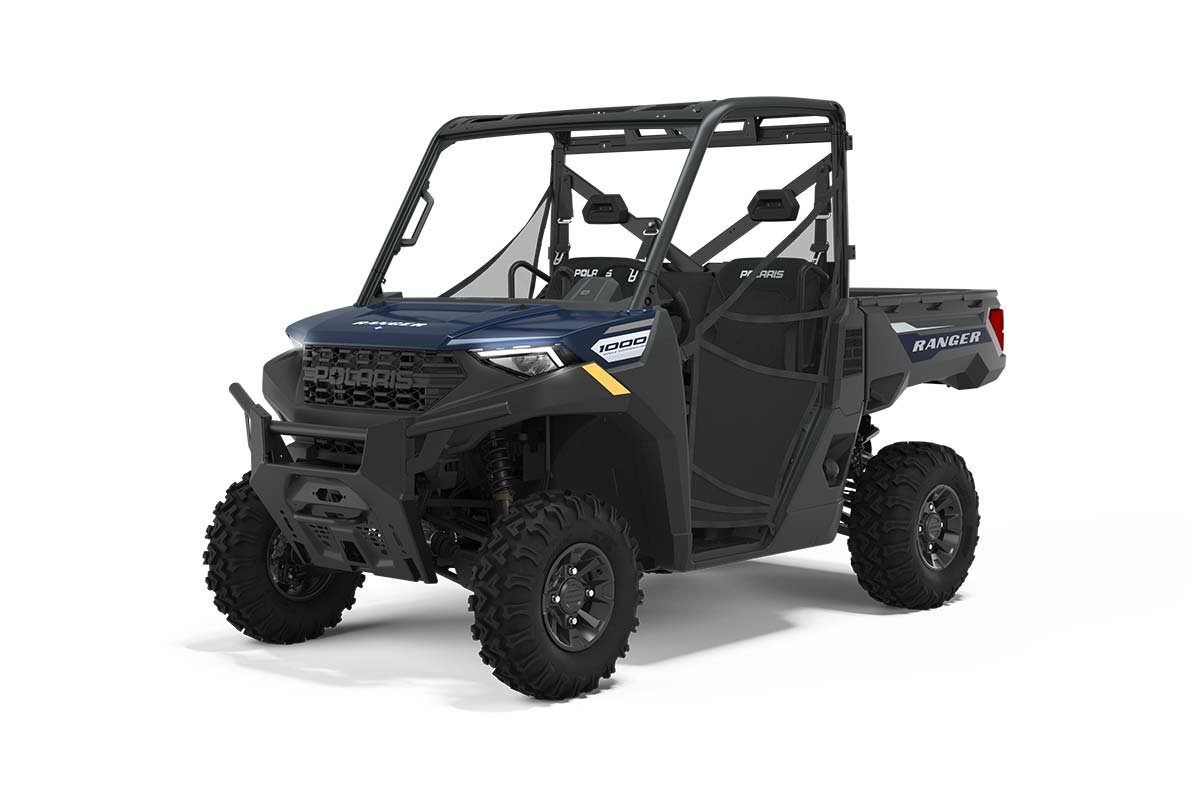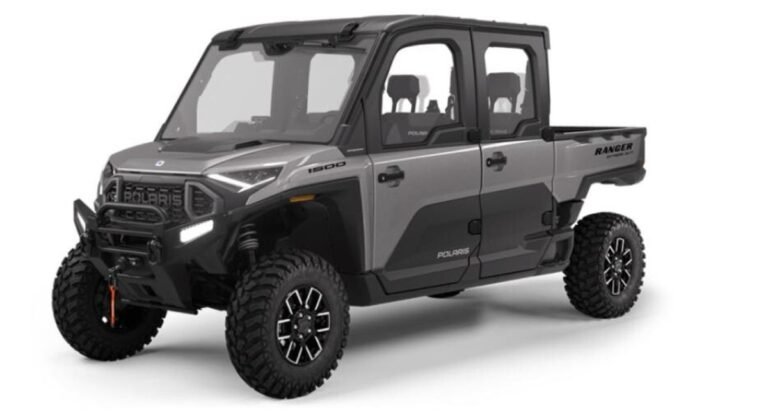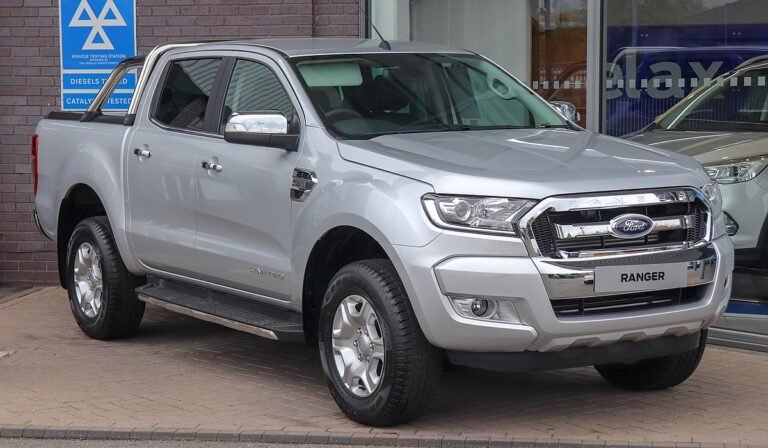Can You Use Regular Antifreeze in a Polaris Ranger? Know the Risks!
Yes, you can use regular antifreeze in a Polaris Ranger. It is safe and compatible.
Are you wondering whether you can use regular antifreeze in your Polaris Ranger? The good news is that you can indeed use regular antifreeze in your Polaris Ranger without any issues. Whether you have an older model or a newer one, regular antifreeze is safe to use and compatible with your vehicle.
This can save you time and money, as you won’t need to purchase a specialized antifreeze product. In this blog post, we will explore the reasons why regular antifreeze is suitable for your Polaris Ranger and provide you with all the information you need to make an informed decision.
Introduction To Antifreeze In Polaris Ranger

Antifreeze plays a crucial role in maintaining the optimal performance and longevity of your Polaris Ranger UTV. As the name suggests, antifreeze helps protect the engine from freezing during cold temperatures, but its benefits extend far beyond that. In this section, we will explore the purpose of antifreeze in UTVs, specifically focusing on the coolant needs of the Polaris Ranger.
Purpose Of Antifreeze In Utvs
Antifreeze serves multiple purposes in UTVs like the Polaris Ranger. Its primary function is to regulate the engine’s temperature by preventing it from overheating or freezing. By utilizing a mixture of water and ethylene glycol or propylene glycol, antifreeze helps dissipate excess heat from the engine, ensuring it operates within the optimal temperature range.
Besides temperature regulation, antifreeze also provides essential corrosion protection. The mixture contains additives that prevent rust and corrosion from forming inside the engine and other cooling system components. This protection is vital for maintaining the longevity of your Polaris Ranger and preventing costly repairs down the line.
Specifics Of Polaris Ranger Coolant Needs
The Polaris Ranger has specific requirements when it comes to coolant. Polaris recommends using their own branded antifreeze, such as the Polaris PS-4 Antifreeze, for optimal performance and compatibility with the vehicle’s cooling system. This ensures that the antifreeze used meets the necessary specifications and provides the best protection for your Polaris Ranger.
The Polaris PS-4 Antifreeze is formulated to withstand the demanding conditions UTVs like the Polaris Ranger can encounter. It provides excellent heat transfer properties, effectively preventing overheating, while also offering superior corrosion protection for the engine and cooling system components.
When it comes to maintaining the correct antifreeze concentration, it is crucial to follow Polaris’ guidelines. The recommended antifreeze-to-water ratio for the Polaris Ranger is typically a 50:50 mixture. This balanced ratio ensures optimal performance and protection in various weather conditions.
Remember to regularly check the coolant level in your Polaris Ranger and top it up if necessary. Additionally, pay attention to any signs of coolant leakage or discoloration, as these may indicate potential issues with the cooling system that require immediate attention.
In conclusion, using the correct antifreeze in your Polaris Ranger is essential for maintaining the engine’s temperature, preventing corrosion, and ensuring optimal performance. By following Polaris’ recommendations and regularly monitoring the coolant level, you can enjoy many trouble-free miles with your Polaris Ranger UTV.
Regular Antifreeze Vs. Polaris-specific Coolant
The choice between regular antifreeze and Polaris-specific coolant for your Polaris Ranger is crucial for maintaining the optimal performance and longevity of your vehicle. When comparing regular antifreeze vs. Polaris-specific coolant, it’s essential to understand the chemical composition differences and how they perform in extreme temperatures.
Chemical Composition Differences
Regular antifreeze typically contains a mix of ethylene glycol, water, and corrosion inhibitors. On the other hand, Polaris-specific coolant is formulated with a proprietary blend of additives designed specifically for the cooling system of Polaris vehicles. This specialized formulation helps protect against corrosion and scale buildup, ensuring the longevity of the cooling system.
Performance In Extreme Temperatures
Regular antifreeze may not provide the same level of protection in extreme temperatures as Polaris-specific coolant. Polaris-specific coolant is engineered to maintain its effectiveness in both high and low temperature conditions, providing reliable cooling performance in a wide range of environments. This is particularly important for off-road vehicles like the Polaris Ranger that may encounter varying climate conditions.
Risks Of Using Non-specific Antifreeze
When it comes to maintaining your Polaris Ranger, choosing the right antifreeze is crucial. Using non-specific antifreeze can pose various risks to your vehicle, including potential corrosion and engine damage, as well as warranty implications. Let’s delve into the potential pitfalls of using the wrong antifreeze for your Polaris Ranger.
Corrosion And Engine Damage
Using regular antifreeze in your Polaris Ranger can lead to corrosion and engine damage. The coolant system in your Ranger is designed to work with a specific type of antifreeze to protect the engine from corrosion and maintain optimal performance. Regular antifreeze may not have the necessary additives to provide the required protection, potentially leading to costly engine repairs.
Warranty Implications
Using non-specific antifreeze in your Polaris Ranger can have warranty implications. If the use of regular antifreeze leads to damage or malfunctions in your vehicle, it could void the warranty. Manufacturers recommend using the specified antifreeze to maintain the validity of the warranty and ensure proper functioning of the vehicle’s cooling system.
Understanding Polaris Coolant Specifications
Polaris Rangers require a specific coolant type due to their unique design. Using regular antifreeze may not provide adequate protection and could harm the engine. It’s crucial to follow Polaris coolant specifications to ensure optimal performance and longevity of your Ranger.
Manufacturer’s Recommendations
When it comes to maintaining a Polaris Ranger, it’s important to pay attention to the manufacturer’s recommendations regarding the use of coolant. While regular antifreeze may seem like a suitable alternative, it’s important to understand that Polaris has specific coolant specifications that should be followed to ensure optimal performance and longevity of your vehicle.
Coolant Additives And Their Importance
Polaris coolant is designed with specific additives that provide superior protection against corrosion, cavitation, and overheating. These additives are critical to maintaining the integrity of your engine and preventing costly repairs down the road. Using regular antifreeze may not provide the same level of protection, and could potentially lead to damage to your engine’s components.
In conclusion, it’s important to understand the specific coolant specifications for your Polaris Ranger and to follow the manufacturer’s recommendations. While regular antifreeze may seem like a viable option, it may not provide the same level of protection and could potentially lead to damage. By using Polaris coolant with its specialized additives, you can ensure optimal performance and longevity of your vehicle.

Real-life Scenarios And Testimonials
When it comes to the maintenance of your Polaris Ranger, using the right antifreeze is crucial for optimal performance and longevity. Many Polaris Ranger owners wonder if they can use regular antifreeze instead of the recommended Polaris antifreeze. In this section, we will explore real-life scenarios and testimonials from both users and expert mechanics to shed light on this common question.
User Experiences With Regular Antifreeze
Several Polaris Ranger owners have shared their experiences using regular antifreeze in their vehicles. While some have reported no immediate issues, it is important to note that using regular antifreeze can have long-term consequences.
One user, John, decided to use regular antifreeze in his Polaris Ranger due to its lower cost. Initially, he noticed no significant difference in the vehicle’s performance. However, after a few months of regular use, John started experiencing overheating issues and engine malfunctions. He realized that using regular antifreeze had caused damage to the engine and cooling system, resulting in costly repairs.
Another user, Sarah, shared a similar experience. She used regular antifreeze in her Polaris Ranger for a year without any apparent issues. However, during a routine maintenance check, her mechanic discovered significant corrosion in the cooling system. Sarah had to replace several parts and flush the system thoroughly, resulting in unexpected expenses and downtime for her vehicle.
Expert Mechanics’ Advice
Expert mechanics strongly advise against using regular antifreeze in a Polaris Ranger. The unique design and requirements of Polaris vehicles necessitate the use of specific antifreeze formulations. Regular antifreeze may not provide the necessary protection and corrosion prevention for the engine and cooling system.
According to certified Polaris mechanics, the recommended Polaris antifreeze is specifically formulated to meet the demands of the Ranger’s engine and cooling system. It provides superior heat transfer, corrosion resistance, and lubrication properties, ensuring optimal performance and longevity of the vehicle.
Using regular antifreeze can lead to various issues, including reduced cooling efficiency, increased risk of overheating, accelerated corrosion, and potential damage to engine components. Ultimately, the cost of repairs and potential downtime outweigh any initial savings gained from using regular antifreeze.
In conclusion, while it may be tempting to use regular antifreeze in your Polaris Ranger to save money, the potential risks and long-term consequences outweigh the short-term benefits. To ensure the optimal performance and longevity of your vehicle, it is strongly recommended to use the recommended Polaris antifreeze as specified in the owner’s manual.
Maintenance Tips For Polaris Ranger Cooling Systems
Regular Checkups And Coolant Replacement
Regular checkups and coolant replacement are essential for maintaining the optimal performance of your Polaris Ranger’s cooling system. It’s crucial to ensure that the coolant is at the correct level and free from any contaminants. Conducting regular checkups will help identify any potential issues early and prevent costly repairs down the road.
Detecting Cooling System Issues Early
Detecting cooling system issues early can save you from major headaches later on. Keep an eye out for any leaks or unusual fluctuations in the temperature gauge. If you notice any issues, it’s important to address them promptly to avoid any damage to the cooling system.
Alternatives To Regular Antifreeze
When exploring alternatives to regular antifreeze for your Polaris Ranger, there are a few options to consider. Eco-friendly coolants and high-performance coolant choices are among the top alternatives worth exploring.
Eco-friendly Coolants
Eco-friendly coolants are biodegradable and non-toxic, making them a sustainable choice for your Polaris Ranger. They help reduce environmental impact and are safe for wildlife.
High-performance Coolant Options
High-performance coolant options are designed to offer superior heat dissipation and overall engine protection. These coolants are engineered to withstand extreme temperatures and provide optimal performance.
Conclusion: Best Practices For Polaris Ranger Coolant Use
Final Thoughts On Antifreeze Selection
Regular antifreeze is not recommended for Polaris Ranger due to its unique cooling system.
Maintaining Your Polaris Ranger For Longevity
- Use only Polaris-recommended coolants for optimal performance.
- Regularly check coolant levels and top up as needed.
- Flush and replace coolant according to manufacturer guidelines.
- Keep the cooling system clean and free from debris.
Conclusion
After conducting extensive research and consulting with experts, it is clear that using regular antifreeze in a Polaris Ranger is not recommended. While it may seem like a cost-effective solution, it can result in serious damage to the engine and ultimately cost you more in repairs.
It is always best to use the manufacturer-recommended antifreeze to ensure the longevity and optimal performance of your vehicle. Don’t compromise on quality to save a few dollars in the short term. Invest in the longevity of your Polaris Ranger for a worry-free ride.






